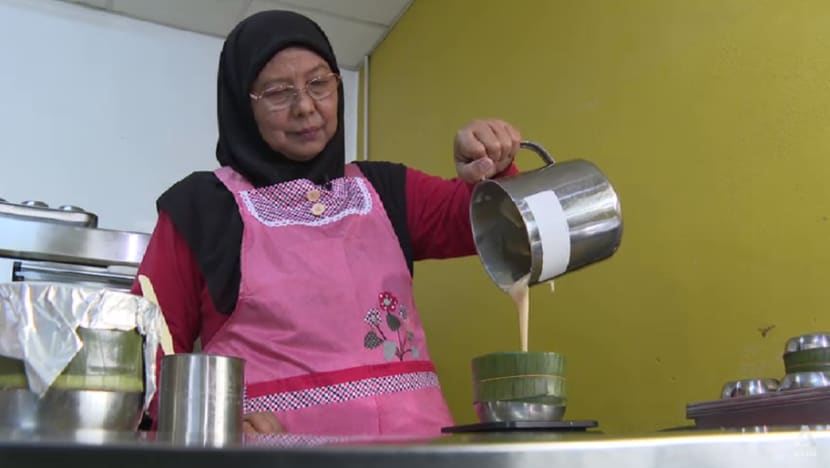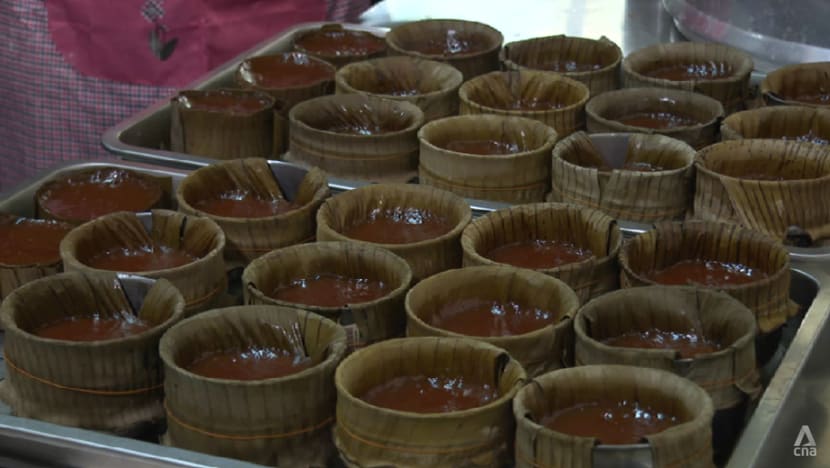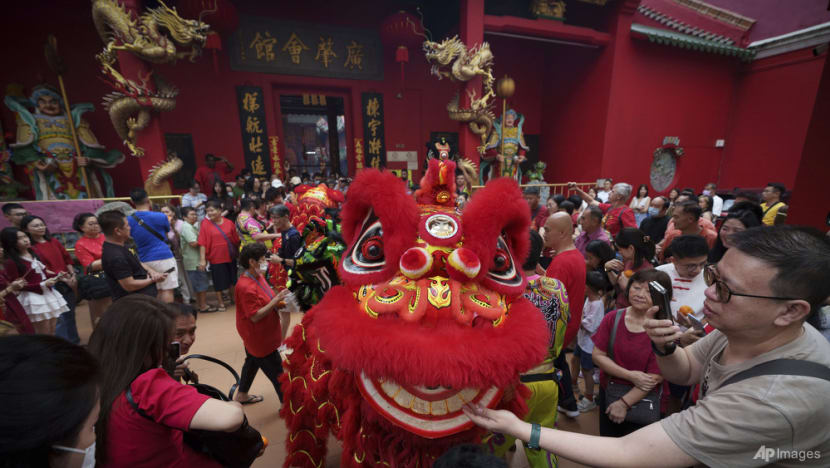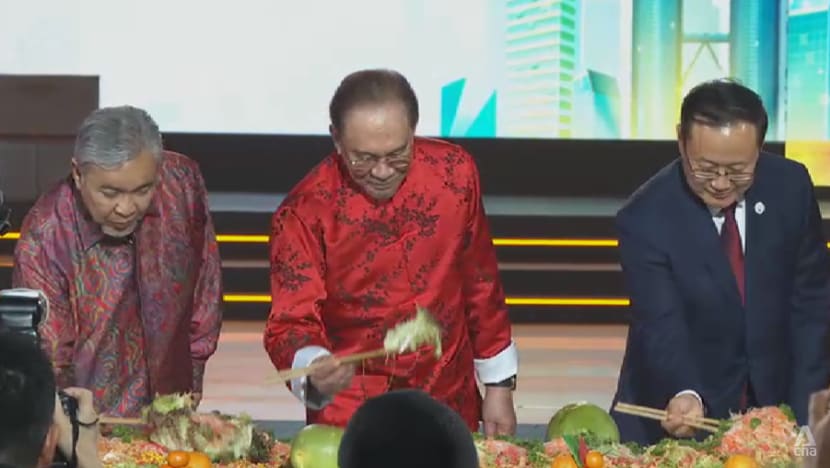Nian gao: A sweet treat that unites Malaysia's diverse communities during Chinese New Year
Malaysia is leveraging the diverse festive celebrations of its multiracial communities to promote cultural tourism this Chinese New Year.

Baker Jamilah Ahmad pours nian gao, or kuih bakul, batter into a mould lined with banana leaves as she makes the traditional Chinese sticky rice cake for Chinese New Year, in Langkawi.

This audio is generated by an AI tool.
LANGKAWI: Homemaker-turned-entrepreneur Jamilah Ahmad owns a bakery on the island of Langkawi in Malaysia’s northern state of Kedah.
During this Chinese New Year period, her business specialises in making the traditional Chinese sticky rice cake called nian gao.
The sweet treat is a must-have for many Chinese families during Spring Festival celebrations to usher in good luck and prosperity.
Across the country, nian gao – known as kuih bakul in Malay – are sold in markets in the weeks leading up to Chinese New Year.
Aside from the Malaysian-Chinese community, it is also enjoyed by Malaysians of different backgrounds in the country’s multiracial and multicultural society during this festive period.
“I really like nian gao. In Langkawi, we’re close with the Chinese community. They are always willing to share and they taught me how to make (this dish),” said Jamilah, the founder of Izzat Yap Traditional Bakery.
Sweet, gooey and wrapped in banana leaves, her kuih bakul is a hit on social media.
MAKING NIAN GAO
The process of making nian gao is painstaking – and even more so for Jamilah as she cooks them using steamers instead of newer equipment like slow or pressure cookers.
She mixes the batter – comprising glutinous rice flour, sugar and water – the day before and lets it sit overnight.
In Malaysia and parts of Southeast Asia, the recipe usually includes palm sugar and pandan or other local flavourings.
The batter is then poured into cake pans lined with banana leaves and steamed at low heat for about 12 hours.
Once the nian gao is removed from the steamer and cooled, the pieces are taken out of the cake pans and excess banana leaves are trimmed off.

The rice cakes are dried under the sun for at least an hour to prevent mould from growing. The finished product can last up to a year.
Nian gao is usually cut into slices, dipped in egg batter and stir-fried over medium heat before being eaten. The result is a sweet treat crispy on the outside and chewy on the inside.
ENJOYED BY DIFFERENT RACES
Sold at about US$3 each, Jamilah’s kuih bakul are snapped up by locals and tourists by noon each day.
She said many Chinese customers order rice cakes from her shop, which is halal-certified, during this period and gift them to their Muslim friends to spread the festive spirit.
She added she hopes her kuih bakul will bring different communities closer together.
“My friend gave me one (of Jamilah’s kuih bakul). It's very popular, I see a lot of people buying it. It shows the spirit of togetherness, whether it's Chinese New Year, Deepavali, or Hari Raya,” said one Langkawi local in Malay.
“We are a united multiracial community. They take part in our festive celebrations, and we take part in theirs. We are one big family,” another resident told CNA in Mandarin as he purchased nian gao from Jamilah’s store.

MULTICULTURALISM TO DRAW TOURISTS
The shared enjoyment of these rice cakes is one example of the nation’s cultural diversity that the Malaysian government wants to showcase to the world and attract tourists.
Malaysia has been promoting vibrant festivals and events to meet its target of bringing in more than 31 million visitors this year.

“I am delighted to say that we all embrace … festivals celebrated by various communities here … and accept them as part of our Malaysian culture,” said Prime Minister Anwar Ibrahim during a Chinese New Year celebration hosted by the Ministry of Tourism, Arts and Culture in Kuala Lumpur.
Decked out in traditional red Chinese attire, he told guests, including China's tourism officials, that the vibrant Chinese New Year celebrations in Malaysia reflect a shared commitment to harmony and mutual appreciation.
“We are ready to welcome our friends from overseas,” he said, adding that Malaysia embraces diverse traditions that foster meaningful cultural exchanges and strengthen bonds, not just within the nation but also internationally.
















